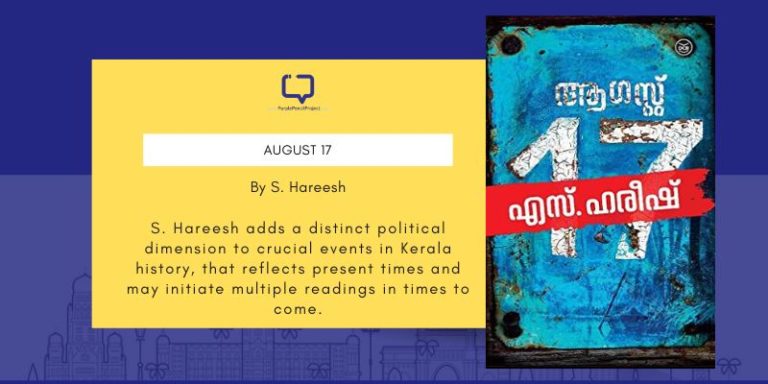You’ve probably seen the critically acclaimed movie now (if you haven’t, I’d recommend it as much as the book), but even if you have, that’s still no reason for you to miss out on this utter pleasure.
We encourage you to buy books from a local bookstore. If that is not possible, please use the links on the page and support us. Thank you.
The Martian is interesting even if you know nothing about the storyline – Andy Weir initially wrote it as a free periodical. As each chapter was written, it was uploaded to his website.
The end result?
A book that proved so popular that he got a book deal for it, even though it had been written, completed, and spent a good amount of time up on the internet, free to be accessed by what could potentially have been looked at as its consumer base.
The Martian is at its heart a story that’s easily recognisable – man is stranded in a deserted setting, and must figure out a way to survive and return to civilization. But Weir’s snappy writing, as well as the setting of the majority of the book – Mars – makes it a continually gripping and compelling tale nonetheless.
The book is the story of Mark Watney. An astronaut in the near future, Watney is part of the crew of Ares 3, the third of a series of NASA missions that send astronauts up to the surface of Mars. Everything is going well for the first couple of days (the plan is to remain on-planet for a month), until a major storm hits, forcing the crew to evacuate the planet and start the return journey to Earth immediately.
The only problem?
While making their way from the makeshift structure in which their live to the shuttle that will take them off-planet, Watney is hit by a piece of flying debris and presumed dead by the rest of the crew, who have no choice but to leave what they think is his body behind in order to safeguard their own lives. Of course, Watney is very much alive, and that’s where the story begins.
A significant amount of the story is in the first person, with Watney being the one to speak to the reader. While a first person is not something I am often fond of, it works here – the in-world explanation is that the text is merely a transcription of a section of the daily video logs Watney makes while he is stranded, in an attempt to maintain a level of contact with humanity, despite being millions of miles away from the nearest human being. But Watney’s is not the only point of view in this story.
While the focus remains consistently on him, the book constantly cuts to both the rest of the crew of the Ares 3 mission, on their way back to Earth and under the impression that Watney is dead, and to NASA on earth. For the first half of the book, it is NASA that plays the important secondary role to Watney – having accidentally discovered Watney is still alive after holding a public funeral for him, the agency scrambles desperately for both a way to rescue him and make contact with him to let him know that they are aware of his continued survival. The main issue is simple – Watney and NASA, and through them, the reader, are fully aware that the biggest issue facing Watney is the simple fact that no matter what he does, he will, sooner or later, run out of food. Watney delays this by figuring out how to grow potatoes on Mars, but that only serves to delay the inevitable – and thus NASA scrambles on Earth to get their astronaut back, and avoid a public relations disaster at the same time.
The second half shifts the secondary focus to the crew of the Ares 3. While NASA discovers Watney’s survival early on in the story, bureaucracy means that the rest of the crew know nothing of it as they make their way back to Earth (something that takes several months in itself) until they are told at about the midpoint of the story. From here on, their role becomes more important, as they start to play an ever more important role in the plan to ensure Watney’s survival and rescue.
Unlike Watney’s sections, the bits with NASA and the rest of the crew and solidly in the conventional third person. Weir shifts tenses and POVs skilfully, fleshing out not only his main character but a whole host of background characters as well. Even the most minor character feels real to the reader, and Weir does this while continually pushing up the tension for both his real audience and the fictional one watching Watney’s story play out in-universe.
And the fictional audience exists – both his other characters, as well as the rest of the population of Weir’s world of the near future because as Weir’s NASA finds out something, they are forced to reveal it to the world. And so Weir makes his story an homage to the best of humanity – it is as much about the world coming together to save one man as it is about Mark Watney surviving alone. And it is the world that fights for Watney – some of the most memorable moments of the book are a result of plot twists that ensure that this fact is clearly conveyed to the reader.
A last thing to note – aside from being a great read, Weir has kept his story as scientifically accurate as he could possibly make. And considering he wrote to – and heard back from – NASA regarding many of his ideas and questions over human travel to Mars, as well as other still non-existent technology he mentions in the book, it’s not unfeasible that some of his ideas may be part of a NASA expedition in the future.
Favourite Quote: “I admit it’s fatally dangerous,” Watney said. “But consider this: I’d get to fly around like Iron Man.”
Recommended Age Group: Over 16 years
Rishika Aggarwal is a 23-year old perpetual student, writing poetry in between work and literary theory. You can find her reading, and arguing about books with Sakhi, or at rishwrites.tumblr.com and https://gumroad.com/rishwrites.























